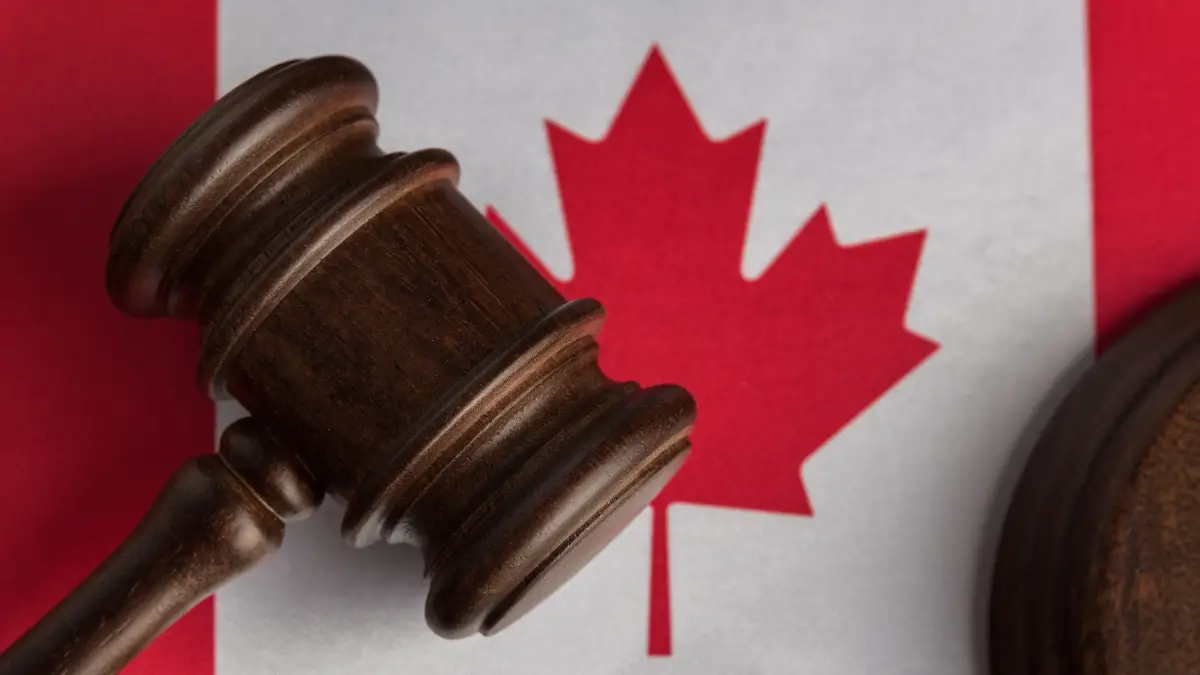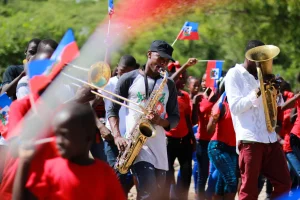In April 2018, I arrived in Canada as a permanent resident through Regular Quebec’s Skilled Worker Program, along with my ex-wife and three children. Drawn by Canada’s reputation for fostering multiculturalism, diversity, and inclusion, we were optimistic about contributing to Canadian society and enhancing our living conditions.
However, our marital union, like many, encountered challenges, culminating in a mutually agreed upon divorce initiated in July 2022. This personal transition led to my interactions with the Canadian justice system, specifically the family court in Ottawa. My experiences during this period have prompted a critical examination of what I perceive as systemic biases within the system, particularly against men and more so against men of African descent.
In my analysis, I employ the theoretical frameworks of Aníbal Quijano’s “coloniality of power” and Frantz Fanon’s psychoanalytical approach, particularly focusing on Fanon’s concept of phobogenesis. Quijano critically examines the global colonial matrix that European settlers, including figures like Christopher Columbus and Vasco da Gama, established since the 15th century. He exposes how this system was built on violence and oppressive ideologies to assert control and dominance over other societies, highlighting the profound injustices embedded within these institutions. These ideologies continue to underpin contemporary institutions, masquerading as efforts toward democracy, human rights, diversity, inclusion, and justice. Additionally, Fanon’s concept of phobogenesis illustrates how colonial legacies foster and maintain fear and hostility towards and from ‘the other,’ perpetuating systemic discrimination in today’s society.
This article argues that the Canadian judicial system, particularly the Ottawa family court, reflects Canada’s colonial roots as a British colony and its genocidal history against Indigenous populations. Despite the performative apology of June 2008, these colonial legacies continue to manifest not only in persistent discrimination against North America’s Indigenous peoples but also against those labeled as “dangerous aliens,” a term reminiscent of Theodore Roosevelt’s 19th-century categorization of non-Europeans in North America. The discussion raises important questions about the specific vulnerabilities of Black individuals within this framework, whom Fanon identifies as “phobogenic objects.” These are entities that provoke discomfort within the Western social order established in North America.
This account details my personal experiences and observations of the systemic barriers I encountered. It underscores the urgent need to critically evaluate and reform institutional practices in Canada that, paradoxically, seem to undermine the nation’s professed values. My aim is to highlight the apparent biases in how clerks, lawyers, judges, and the media handle family matters involving individuals of African descent. This narrative is supported by findings from UN experts in 2016 and a 2024 report by the Black Class Action Secretariat (BCAS), both of which pointed out the persistent anti-black systemic racism within Canadian institutions. This testimony is intended to foster discussion and provide insights, rather than serve as a legal argument or influence ongoing legal proceedings.
Canadian Justice Compromised
During the divorce process, an online hearing was held on November 24, 2023, which was fraught with irregularities in both form and content, setting off a chain of events that, in my view, compromised the principles of justice in Ontario. The confusion began with a miscalculation of the time difference between Canada and Taiwan, where I was conducting PhD fieldwork in Anthropology for the University of Ottawa.
As a result, I mistakenly joined the Zoom conference 40 minutes late, under the impression that I was early. By this time, the opposing party had already presented their case. I promptly explained the reason for my delay to the judge and sought an opportunity to present my facts. However, the judge dismissed my explanations, undermining the fairness of the trial and breaching due process. When I voiced my frustration and disappointment, the judge sharply reprimanded me, asserting her ultimate authority in the courtroom. She made a pointed remark about me not being “at home.” The judge’s remark that I was not “at home” carried a loaded implication.
Clearly, her reference was not to my physical residence in Ottawa, especially since the meeting was conducted online and I was in Taiwan at the time. Instead, her comment pointed to my family environment, deeply rooted in African values. This insinuation suggested that she viewed my African origins and values as authoritarian and oppressive, framing the legal proceedings as an opportunity for her to assert control or exact retribution. Furthermore, her statement implied that as an African in Canada, I was an outsider, subject to the laws established by her forebears rather than an equitable legal framework. This not only highlighted a personal attack but also underscored a broader issue of systemic bias within the judicial process.
This encounter left me deeply reflective and disturbed, pondering the personal and hostile nature of the interaction with a judge I had never met before. Was her vindictive stance directed at me as an individual, or was it influenced by prejudices linked to my African heritage? This experience raises serious concerns about discriminatory attitudes within the legal system, particularly regarding individuals from an African family background.
Inexplicable Subjectivity
This experience has led me to question the neutrality of our judicial system: Is it truly just if it appears influenced by inexplicable subjectivity? As a man, I must consider whether my gender has subtly positioned me as the target of particular vindictiveness from the judge, the two lawyers, and the clerk involved. Could it be that, in their eyes, my fault lies merely in my masculine identity or African origin, thereby rendering me guilty before I even had the opportunity to speak? These concerns cast serious doubts on the fairness and impartiality of our judicial system, especially regarding gender and racial dynamics.
Despite these issues, the hearing concluded without considering my perspective. The judge made a decision after only hearing the opposing party’s account, effectively creating a biased narrative against me. Being denied the chance to speak left me in considerable distress.
Challenges in Judicial Document Transmission and Motion Scheduling
Moreover, I faced significant obstacles in obtaining the official legal order from the judgment rendered on November 24, 2023. Despite my repeated requests and communications with the Ottawa Court of Justice’s Family Office from November 25, 2023, to January 17, 2024, I only received the official order on January 29, 2024. This delay severely hindered my ability to prepare for an urgent motion I needed to file due to these issues.
It is perplexing how the simple transmission of a crucial document like a judicial order could encounter such obstacles and delays. Remarkably, the opposing counsel received the order in November 2023, which raises serious questions about the fairness of the process. Compelled by these difficulties, I submitted an urgent motion on December 29, 2023.
The scheduling of this urgent motion also presented challenges. Although it was initially scheduled by the Coordination Office for January 12, 2024, I was unilaterally informed by the opposing counsel at 3 pm on January 11 that the motion would not proceed as planned. Astonishingly, it was not the Family Office or the Coordination Office, but the opposing counsel who informed me—seemingly with triumph—that my urgent motion would not take place.
This situation leads me to question: How could such a decision be communicated without my knowledge? Are we looking at a potential usurpation of role and collusion between the opposing party and the clerks of the family and coordination offices?
Anglophone Domination
The emergency hearing scheduled for January 12 was eventually rescheduled for January 17, 2024. I had informed the family office of my wish to use French, my first language, during the meeting. I was then directed to communicate my request via email to INTER-CITS@ontario.ca.
Despite my compliance with their instructions, no measures were taken to accommodate my need for an interpreter, thus violating the requirements of the French Language Services Act of Ontario.
The hearing was again postponed to February 7, 2024, notably due to the absence of an interpreter. Before postponing the hearing, the judge formally noted that the next session would be bilingual, in accordance with section 23.2 of the Divorce Act.
However, despite this formal provision and the approximately three weeks allotted for its preparation, no measures were put in place to ensure the bilingualism of the February 7 hearing. The judge had already suggested it might be postponed again if one of the bailiffs had not taken the initiative to call in a last-minute itinerant interpreter.
This interpreter, arriving unprepared, did his best to translate. I found myself having to express myself in French and English, as much as possible, in front of the judge, his collaborators, and the opposing party, all unable to communicate in French, in an attempt to make myself understood.
Systemic Flaws and Administrative Failures
Moreover, this last-minute cancellation or postponement, without formal notice or respect for protocol, would illustrate systemic problems in the Canadian judicial system of which the Ottawa Family Office is just the tip of the iceberg that deserves national and international attention.
It is difficult to conceive that individuals can so irresponsibly influence the fate of families through the Ontario Superior Court of Justice, particularly within the Ottawa Family Office, knowing that the family is the fundamental pillar of any society.
This situation leads to questions about what kind of Canadian society we can build when the judicial system is hijacked by individuals aiming to harm and dismantle our family structures.
I wrote to the heads of the Family and Coordination Offices at the Ottawa Courthouse to draw their attention to these irregularities. While the head of the Coordination Office responded vaguely, mentioning an “error,” the head of the Family Office has remained silent to date… I might be deemed unworthy even of receiving an explanation for these irregularities.
The subsequent silence of both officials and the lack of accountability of the court’s administrative staff, coupled with the inappropriate communications of the opposing counsel, have highlighted deeply rooted problems in the system.
I am convinced that the lives of many families in Canada, particularly those of African heritage, have been severely impacted by a lack of due process and biased actions by judicial system officials. The Canadian government’s own official website acknowledges this disparity, stating: “Black people are overrepresented in Canada’s criminal justice system as both victims and people accused or convicted of crime.” This systemic issue is further supported by Statistics Canada data from the 2019 General Social Survey on victimization, which reveals that nearly one in five (18%) Black individuals reported having “not very much” or “no” confidence in the police—more than double the rate among the non-Indigenous, non-racialized population (8%).
Further exacerbating this issue, the 2022 National Justice Survey found a significant gap in perceptions of fairness within the criminal justice system. Only 19% of Black respondents felt confident that the system is fair to all (a rating of 4 or 5 on a 5-point scale), compared to 24% of White respondents.
Opaque Practices and Perceived Bias
For example, on January 26, another incident occurred that further exposed suspicions of collusion between the opposing counsel and the trial coordination.
Indeed, in response to the urgent motion that was finally rescheduled for February 7, 2024, the opposing party’s lawyer filed a request to torpedo this meeting.
In less than 20 minutes, a member of the coordination office wrote to me to put pressure on me and ask for my point of view. Yet, it is absolutely not their role to do so. They were supposed to remain impartial and simply record any requests.
However, a day before, I had also filed a request to ask for details about the number of pages of the affidavit for the motion. They did not display the same zeal towards my request and did not put any pressure on the opposing party’s lawyer, once again exposing suspicions of collusion or partiality of the Clerks’ officials.
On March 21st, 2024, a case management conference ostensibly aimed at resolving ongoing issues merely reinforced existing biases. Contrary to the actual proceedings, the final report erroneously made several false statements and attributed the initiation of the conference to me, instead of the opposing party, and failed to recognize any systemic obstacles, placing all blame squarely on my shoulders. In an attempt to correct this pervasive and systemic bias, I reached out to the local judge, only to receive a stern rebuke that reminded me of the restrictions on such communications, with no subsequent corrections made to the report.
This interaction further illuminated the intractable nature of the colonial matrix described by Aníbal Quijano, which resists change even when its flaws are explicitly exposed. According to Paulo Freire in his Pedagogy of the Oppressed, the only path forward is for the oppressed to become fully aware of the system’s inherent incapacity for self-improvement, to resist it, and to strive towards liberating humanity from both the pathology of the oppressed and that of the oppressors.
Media Silence and Legal Challenges: Echoes of Systemic Racism
As I grapple with the harrowing challenges I have faced within the Ottawa judicial system, I am compelled to consider their wider implications for all Canadian families. The injustices I have encountered prompt a profound reflection: am I viewed through the lens of being part of the Black “race,” a newcomer, an Afro-descendant, or simply as a member of a visible minority or a new immigrant?
These labels, it seems, render individuals like myself vulnerable—marked for oppression, abuse, and mistreatment, often without the means for proper recourse. This introspection brings to light the urgent, ongoing need to confront and eliminate all forms of discrimination, ensuring justice and equity not only within the judicial system but throughout Canadian society at large. Such a commitment to justice is vital for healing and unity, offering hope that we can overcome the shadows of our collective past to build a more inclusive future.
In a bid to raise public awareness about the systemic discrimination I faced within the Canadian justice system, I composed an opinion piece that I submitted to renowned Canadian newspapers, including the Ottawa Citizen, L’Express, The Globe and Mail, Le Devoir, and Le Soleil. Disappointingly, my efforts to engage the press were unmet as none of these outlets opted to publish my story. This collective disinterest from the media underscores a concerning silence which likely reflects a deeper, systemic bias, a remnant of Canada’s colonial past and its history of genocide.
This omission by the media highlights the ongoing challenges and structural barriers confronting individuals of African descent within Canada’s judicial system. By ignoring such critical issues, these media outlets continue the cycle of historical injustices that plague the nation. This situation aligns with the findings of a 2016 United Nations report that highlighted ongoing “racial discrimination, Afrophobia, xenophobia, and related intolerance” against African-Canadians.
Moreover, my personal experiences with the Ottawa family court seem to corroborate complaints brought forward by the Black Class Action Secretariat (BCAS). Notably, Amnesty International Canada’s intervention in the Thompson class action lawsuit on July 17, 2023, exemplifies this point. Despite opposition from the Canadian government, the court granted this intervention on February 8, 2024, signaling a significant acknowledgment of the systemic anti-Black discrimination within the federal public service. This intervention marks a critical stance against Canada’s lapses in fulfilling its international human rights obligations, particularly under the International Convention on the Elimination of All Forms of Racial Discrimination (ICERD) and the International Covenant on Civil and Political Rights (ICCPR).
Further complicating the landscape, on February 26, 2024, a coalition led by BCAS—including the Public Service Alliance of Canada (PSAC), National Union of Public and General Employees (NUPGE), and the Canadian Black Nurses Alliance (CBNA)—filed a formal complaint against the Canadian Human Rights Commission (CHRC). This action was based on allegations that the CHRC has not adequately protected Black and racialized employees from discrimination, pointing to higher dismissal rates for race-based complaints and restricted promotional opportunities for these groups. These actions by the coalition are intended to hold the CHRC accountable, highlighting the agency’s failure to uphold its mandate as Canada’s primary federal watchdog against discrimination, in direct violation of internationally recognized human rights principles and the Paris Principles which guide the operations of national human rights institutions.
Coloniality of Power and Phobogenesis in the Canadian Judicial System
Drawing from Aníbal Quijano’s theory of the “coloniality of power” and Frantz Fanon’s concept of “phobogenesis,” this analysis seeks to elucidate the systemic biases and discrimination evident in the Canadian judicial system, particularly as they affect immigrants, predominantly those of African descent. The coloniality of power suggests that colonial structures and hierarchies of race, established during European colonialism, persist in modern societies, influencing contemporary social and judicial interactions. Quijano’s framework posits that these structures are not relics of the past but active elements that continue to shape power dynamics and social discrimination in postcolonial societies such as Canada.
Similarly, Fanon’s notion of phobogenesis examines how Black individuals are often seen as phobogenic objects within Western societies, eliciting irrational fears and antagonism. This psychoanalytical perspective helps to understand the exaggerated and often hostile reactions that Black individuals might provoke in judicial settings, framed by their perceived otherness and the deep-seated biases that such otherness invokes.
Empirical observations and personal experiences, including my own, indicate that this theoretical understanding is not merely academic. Many immigrants, especially those from African communities, report experiences of hostility and bias within the Canadian legal system. These encounters often resonate with the dynamics described by Quijano and Fanon, where the racial and colonial underpinnings of power relations play out in modern settings, undermining the neutrality and fairness expected of judicial processes. Such biases are not isolated incidents but part of a broader pattern that reflects the colonial legacy embedded within Canada’s institutional frameworks.
This systemic bias is further evidenced by the reluctance of Canadian media to engage with and report on these issues, as discussed in previous sections. The lack of media coverage and public discourse on the discrimination faced by African descent immigrants in the judicial system contributes to the perpetuation of the colonial matrix Anibal Quijano identified, allowing them to remain unaddressed and, critically, unchallenged.
Beyond the 15th-century colonial ventures spearheaded by figures like Christopher Columbus and Vasco da Gama, and extending past the theoretical landscapes shaped by Quijano and Fanon, the 19th century heralded another reinforcement of the colonial and racial matrix in North America. This era cloaked its ambitions under the alluring guise of democracy—a term that has evolved in modern discourse to encompass ideals like human rights, multiculturalism, diversity, and inclusion, often hailed as universal solutions.
This ideological stance was vividly articulated by 19th-century scholars such as Charles Henry Pearson in his racially charged book National Life and Character: A Forecast. Theodore Roosevelt, who would later become the 26th U.S. President from 1901 to 1909, praised this work as one of the most influential of their time, advocating it as a blueprint for future generations to preserve “the temperate zones of the new and the newest worlds as a heritage for the white people.” Roosevelt extolled the virtues of this democratic policy in his review, stating:
“Had these regions been under aristocratic governments, Chinese immigration would have been encouraged precisely as the slave trade is encouraged of necessity by any slave-holding oligarchy, and the result would in a few generations have been even more fatal to the white race; but the democracy, with the clear instinct of race selfishness, saw the race foe, and kept out the dangerous alien. The presence of the negro in our Southern States is a legacy from the time when we were ruled by a trans-oceanic aristocracy. The whole civilization of the future owes a debt of gratitude greater than can be expressed in words to that democratic policy which has kept the temperate zones of the new and the newest worlds a heritage for the white people.”
President Theodore Roosevelt
Roosevelt’s reflections poignantly underscore the enduring “clear instinct of race selfishness” that has historically permeated Western democracies and their institutions, perpetuating a hegemonic whitenessproject. This mirrors Quijano’s analysis of how colonial ideologies continuously sculpt global racial dynamics and governance, alongside Fanon’s concept of phobogenesis which uncovers a discrete yet legal tool for marginalization and oppression. Historically, this manifested in the forcible relocation of those deemed “dangerous aliens” from Canada and the US to Africa, to form nations like Sierra Leone and Liberia. In contemporary times, while physical massive expulsion is less common, oppressive mechanisms persist, denying due process while maintaining the same racial selfishness.
Despite the presence of established justice systems, media, and policing, indigenous populations in North America—Canada’s First Nations, Métis, and Inuit—survivors of the initial genocidal wave during the European colonization in the 15th century, faced renewed atrocities and profound suffering in residential schools. These institutions represented another chapter in their long history of oppression, where systemic violence and cultural erasure continued under the guise of education, christianisation and assimilation.
The 2008 performative apology addressed historical injustices but did little to dismantle the enduring colonial matrix of power as identified by Quijano. This matrix, which includes control over the economy through land appropriation, labor exploitation, and natural resource management; authority through institutions and military power; gender and sexuality via family structures and education; and subjectivity and knowledge through shaping epistemology and educational content, has since expanded to target groups labeled as “newcomers,” “immigrants,” “visible minorities,” and “dangerous aliens.” Should Canada fail to confront these issues decisively, it risks repeating history, possibly requiring future apologies for systematically targeting African family heads, denying them due process, and disrupting their families. It is crucial that history remembers that these continued practices were neither due to unawareness of systemic anti-black racism nor due to a lack of denunciation. Rather, they persisted through a deliberate decision to uphold them and to harvest the “wages of whiteness.”
As Canada strives to project a global image of multiculturalism, diversity, and inclusion—drawing individuals from a multitude of origins and socioeconomic backgrounds—it is imperative that it rigorously confronts and rectifies its deep-seated colonial legacies to avert further harm to those it purports to welcome or those it found established in North America. The intersection of the coloniality of power and phobogenesis offers a potent framework for dissecting the disparities and discriminations in the Canadian judicial system.
This analysis underscores the critical need for a comprehensive reassessment of how deeply ingrained colonial legacies continue to influence and harm those regarded as ‘others.’ It highlights the urgent necessity for systemic reforms to eradicate these entrenched biases, ensuring justice and equity for all under its jurisdiction. This opinion piece is not just a reflection but a call to action, urging Canada to align its professed values with its practices, thereby genuinely embracing the diversity it celebrates.







